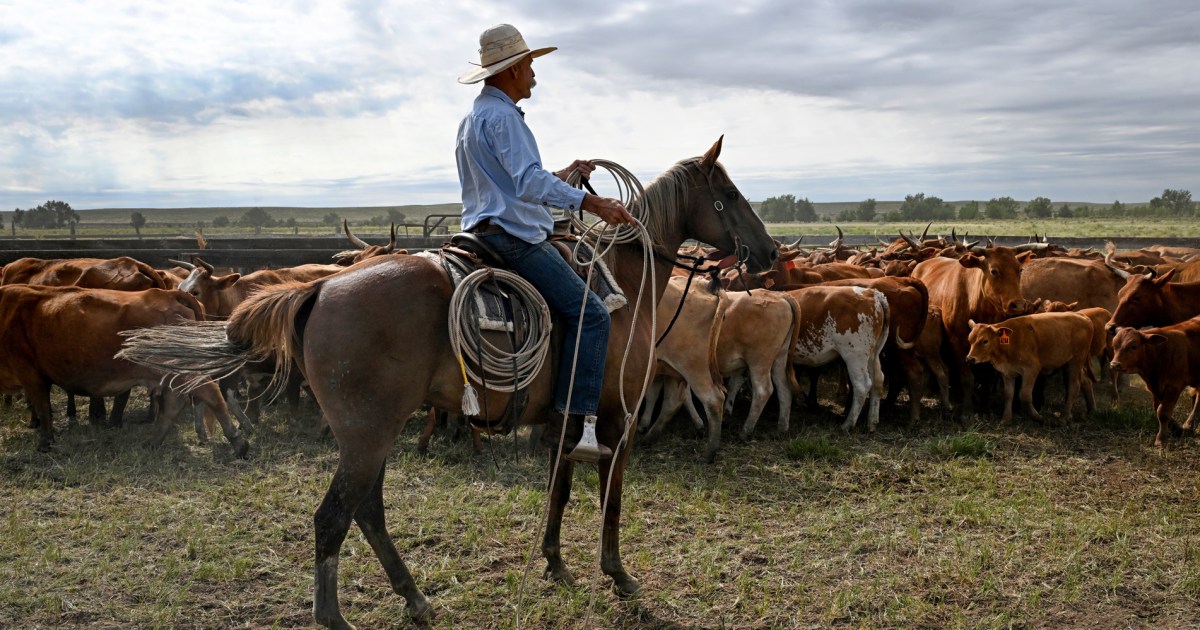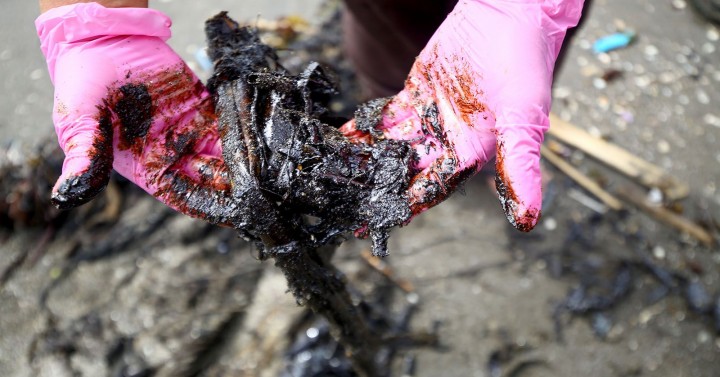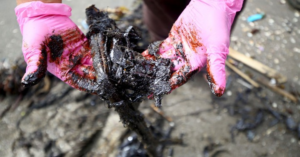Profile
news Alerts
There are no new alerts at this time
The American cattle ranching industry is blasting President Donald Trump’s proposal to purchase beef from Argentina in an effort to lower supermarket beef prices.
“This plan only creates chaos at a critical time of the year for American cattle producers, while doing nothing to lower grocery store prices,” Colin Woodall, CEO of the National Cattlemen’s Beef Association, said in a statement Monday.
Trump floated purchasing beef from the South American nation Sunday aboard Air Force One to push down U.S. beef prices by increasing the overall supply.
“We would buy some beef from Argentina,” he told reporters, “If we do that, that will bring our beef prices down.”
Beef prices have hit record highs this year, according to data from the Bureau of Labor Statistics, fueled in part by depleted herd counts and steady demand from U.S. consumers.
“If we buy some beef now — I’m not talking about that much — from Argentina, it would help Argentina, which we consider a very good country, a very good ally,” Trump said Sunday.
Asked on Air Force One whether a beef deal would benefit foreign cattle raisers at the expense of American ranchers, Trump did not directly answer.
“Argentina is fighting for its life,” he said. “Nothing is benefiting Argentina.”
Woodall of the beef association said any attempt by the Trump administration to interfere with market forces in the beef industry would “harm rural America.”
“Argentina has a deeply unbalanced trade relationship with the U.S.,” he said in the statement, saying $801 million worth of Argentinian beef has been sold to the U.S. market since 2020. American farmers, by comparison, have sold just $7 million worth of beef to Argentina during the same period.
“Argentina also has a history of foot-and-mouth disease,” said Woodall, “which if brought to the United States, could decimate our domestic livestock production.”
A spokesperson for the Argentine Embassy in Washington did not immediately respond to a request for comment on Woodall’s statement.
The Trump administration has gone to extraordinary lengths to help Argentina and its beleaguered president, Javier Milei, an early Trump ally whose party faces crucial midterm elections this month.
“I happen to like the president of Argentina. I think he’s trying to do the best he can,” Trump said Sunday. “And if we buy some beef — now, I’m not talking about that much — from Argentina, it would help Argentina, which we consider a very good country.”
In recent weeks, the Treasury Department has announced plans to organize $40 billion in currency swaps and loans and other financial aid for Buenos Aires to boost Milei’s administration.
The libertarian Milei has pushed through an unprecedented privatization agenda, coupled with severe austerity measures and cuts to the civil service. But his efforts have faltered with voters, prompting a run on Argentina’s peso.
A White House representative did not respond to a request for comment on the beef proposal.
Trump’s support for Milei has already come in for criticism from another part of the U.S. agricultural industry: soybean farmers.
Shortly before Treasury Secretary Scott Bessent announced an initial $20 billion in U.S. support for Argentina, Buenos Aires announced it would suspend its export taxes. Within days, China purchased a reported 7 million metric tons of soybeans from Argentina.
Meanwhile, China imported zero soybeans from American farmers in September. It was the first time China had effectively embargoed U.S. soybeans since November 2018, the last time Beijing feuded with the Trump administration.
Now China’s soybean imports from South America — predominantly Brazil and Argentina — are surging.
“At a time when we should be finding ways to help American farmers deal with this chaotic trade policy, it’s extremely disappointing to see us bailing out Argentina and Argentina farmers in the process,” Aaron Lehman, president of the Iowa Farmers Union and a soybean grower, said in an interview last week.
“We’ve already alienated so many of our trading partners around the world, and our buyers are going to farmers in other countries rather than coming to us,” he said.
On Monday, Argentina’s central bank announced it had signed a so-called currency swap worth $20 billion with the U.S. Treasury, six days ahead of midterm elections that will determine whether Milei can push ahead with his fiscal overhaul.
Milei’s austerity measures and cuts have won him praise from investors abroad but drawn fierce resistance from wide swaths of Argentinian society.
A Treasury official did not respond to a request for comment.
Rob Wile is a Pulitzer Prize-winning journalist covering breaking business stories for NBCNews.com.
© 2025 NBCUniversal Media, LLC



Leave a Comment